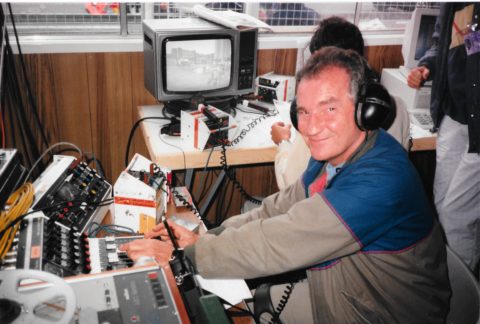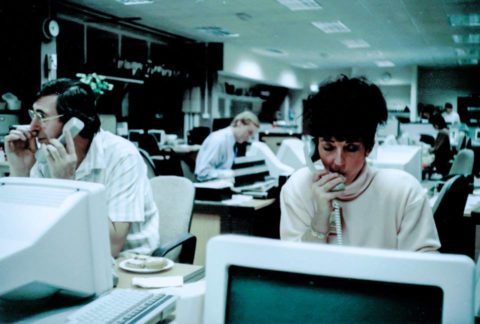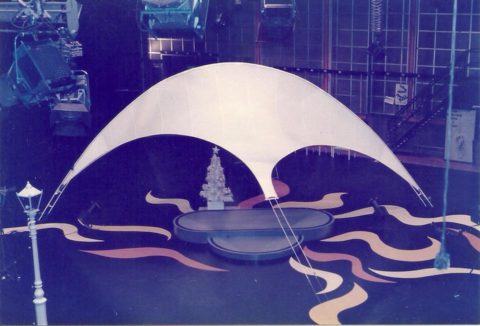Radio WM engineer, Stuart Miller, at the controls for the coverage of the first Birmingham Superprix road race in 1986.
Thanks to Rod Fawcett for sharing the photo.
The following comments were left on the Pebble Mill Facebook page:
Andy Walters: ‘Would it surprise you to know we still have that mixer and DK monitoring unit at WM?’
Rod Fawcett: ‘Wow yes a little surprised!! But it was well built and I think flight cased to protect the gear…’
Iain Betson: ‘All standard BBC LR issue OB kit. MX6/2, DK2/21, ASC mod’ed PR99. It just worked. I know, I used it a lot!’
Andy Walters: ‘I must admit it gets little use but does still work. Must be thanks to the flightcase as my OB kit was stored in the garden shed on the car park at Pebble Mill for years.’
Malcolm Hickman: ‘Stuart was a great guy. I first met him when I was attached to P&ID building the Comms Centre in 1971. Radio Birmingham were in the building before it opened. There was no restaurant, but we had a kitchen and the lads came in to use the kettle.’
Keith Conlon: ‘Stuart was a great man when I was working for BBC Radio Birmingham then BBC Radio WM as a freelance Station Assistant. Very helpful offering advice with my live music sound mixing.’
Colin Pierpoint: ‘I worked with Stuart many times when he was in Radio OBs and I was in Radio 4 Midland continuity (previously the Midland Home Service). Afterwards when he was Radio Birmingham Engineer (later Radio WM) we cooperated one evening when there was a fault on air on Radio WM. He was at home and asked me to go into an unstaffed Radio WM Ops room, he then talked me round the equipment to make the necessary adjustments. That was in the days when the phone I was using to hear Stuart had a wire attached!’
Pete Simpkin: ‘Stuart was a real pioneer. Together we did the first…and… as far as l know…..only complete broadcasts for Radio Birmingham/WM of Sikh, Hindu, Muslim and Jewish worship on any radio station in the country….one of them live. It involved complex rigging and audio balances and observation of the customs and traditions of the various communities.’



